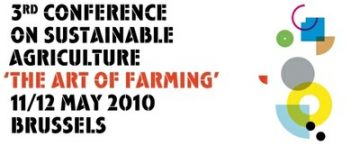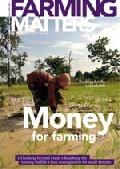
Three hundred bright minds from business and industry, science, governments, NGOs and farmers’ organisations, recently met in Brussels at an international conference called “The Art of Farming”. They explored the potential of sustainable business models that include small-scale farmers. Is this too good to be true? What lies behind this new interest in small farmers? And what are the potential problems and opportunities? There are two main reasons for the global agro-industry’s interest in smallscale farmers. First, there is increasing demand from consumers for fair and sustainable products. This has alerted the industry to the importance of managing reputation. A recent example is the consumer campaign that led Nestlé to decide not to use palm oil produced on plantations cleared from rainforests. Second, and more importantly, agro-industry is keenly aware of the looming dangers of climate change, which they recognise could endanger supplies of raw materials. They see the wisdom of diversifying supplies and spreading their risks. Together, these two factors are pushing the industry to explore the possibilities of doing more business with smallscale farmers. Yet this brings the complexity of having to deal with large numbers of people, who are considered to be risk averse. They realise that they cannot manage this challenge on their own and are looking to establish innovative partnerships with NGOs and farmers’ organisations who can help them explore this new territory.
What might this mean for small farmers and the organisations that work with them? Is this going to be a win-win situation, as reports of some successful experiences suggest? Or will things be more complicated? Much will depend on the space these farmers get in these new partnerships. Will they be able to build on their own strategies towards risk diversification and maximising their options? Or will they be driven towards commodity production and become completely dependent on a single cash crop? While small-scale farmers need money, they also need to maintain a sustainable resource base. This is more than risk aversion: it is a very sensible strategy in a hostile environment. Many small-scale farmers are women. Yet the majority of speakers at the conference in Brussels were men. There is no easy match between the compelling financial logic of agro-industry and that of small-scale women farmers. Let us actively engage with agro-industry and farmers and try to make sense of it together.
Text: Edith van Walsum, director ileia

